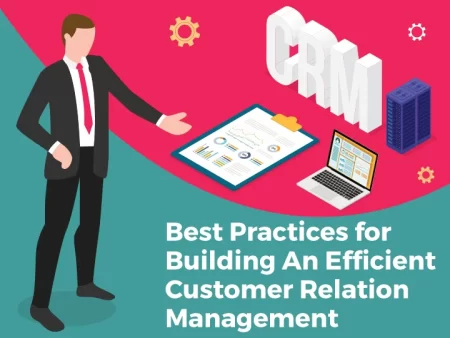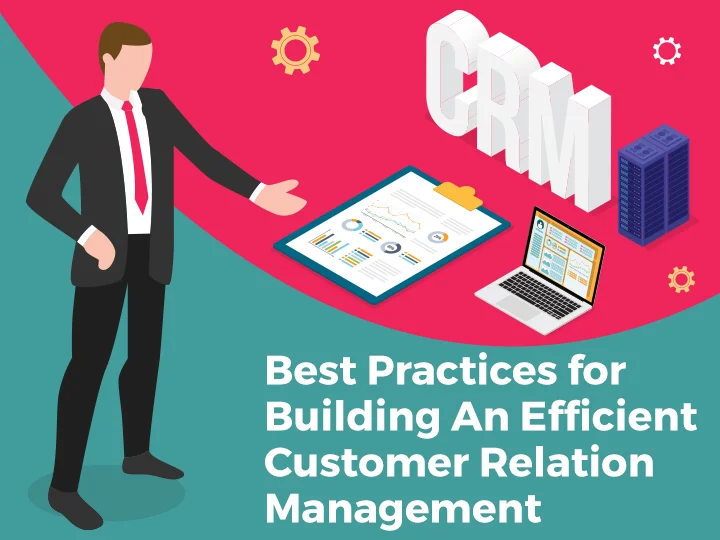 Your customer support team is the frontline that is responsible to solve problems faced by your users. Irrespective of the fact that you are selling a product or providing a service, you need the best team that is capable to assist the moment an issue arises.
Your customer support team is the frontline that is responsible to solve problems faced by your users. Irrespective of the fact that you are selling a product or providing a service, you need the best team that is capable to assist the moment an issue arises.
Several ways help in creating the best customer experience. It requires training your employees, employing multiple channels of customer support, or making use of the right tools. Customer relation management software is one of those important tools that can make a lot of difference in the way you serve your customers.
What is a Customer Relation Management Software?
A customer relation management software is essentially a platform for collecting and organizing complex information. It includes but isn’t limited to customer data or important customer information in an easy-to-access format. The system stores details of your contacts such as their phone numbers, emails, name, etc.
Although these are important for personal work, it isn’t enough to make your sales and support teams succeed. You need a more robust and advanced CRM system. Such systems not only collect personal data but also includes business details, and organized profiles as per similar businesses. It also provides additional information as to who from your team had already contacted that business or inquiries that had already been sent to them.
These platforms facilitate checking if someone from the team had previously contacted a vendor regarding different interests of the company. It also provides information if the user was interested in the products or services you are offering. This information is very useful for the sales team and others as well. User insights not only include conversions but are also utilized by other departments.
Common Customer Relation Management Terminologies
CRMs have their language for specific things they use. Although some are familiar, it’s important to know them as it helps in using customer relationship management effectively.
1. Contact
As evident from the word, it is a person that your sales team needs to communicate. Like a contact app of your phone, it provides multiple details of the contact such as name, business, etc. Primarily contact is connected with the company account for organizing them further.
2. Lead
Lead is essentially the contact who is the intended buyer. Usually, they have already shown interest in your content or service.
3. Opportunity
Once leads are identified from the contact list and the sales team reaches out to find if they are actually interested in your business. This process converts a lead into an opportunity. It means that they are potentially likely to purchase your product or service.
4. Quote
The quote is referred to as an estimated cost of a product or service you are offering. The quote is different from the cost as it has been specialized for specific circumstances and needs. It may also include special offers.
5. Deal
It is the end, which may be a sale or not. They may be Won or Lost deals but, in a CRM, it is a list of records showing overall sales experience.
6. Profiles
People within a company are the profiles stored in a CRM. Lead, contact, and opportunity information may be passed across profiles as and when required.
7. Campaign
Useful for support, marketing, and support teams, campaign word in customer relationship management refers to the marketing project. It provides information about the project duration, the time it was executed, and how successful it was.
8. Tag
Containing additional information, the tag is adding more context to contacts, opportunities, sales, or leads. It helps in filtering specific subjects that are useful to search for a specific thing in a profile.
9. Activity
Everything happening within customer relation management software including messages won deals, new leads, etc. is recorded in the activity segment. Mostly presented in a larger timeline window, the activity allows you to view and skim through recent actions.
What Is The Cost of A CRM?
Any quote of a Customer Relation Management Software is based on the number of users using the tool. Some additional factors that determine the cost include:
- Scale of operations
- Features used
- Essential aspects to achieve your objectives
- Support required by your team
The market has various CRM options for both small and large operations. They are available in almost every budget category. Even some free CRM apps are simple enough to get the basics done. Depending on the kind of features you are looking for, the costs of a CRM may be anywhere between $5-$75/user a month.
The range is wide but this is due to the variety of tools each CRM comes with. You need to analyze and identify the goals of your company and select the best-suited software that helps you carry out your important business operations.
In case you are confused and looking for professional help to select the best CRM for your business in Florida, get in touch with CRM Solutions. They not only provide customized software based on your needs but also evaluate your requirements to recommend the best-suited option for your business.

